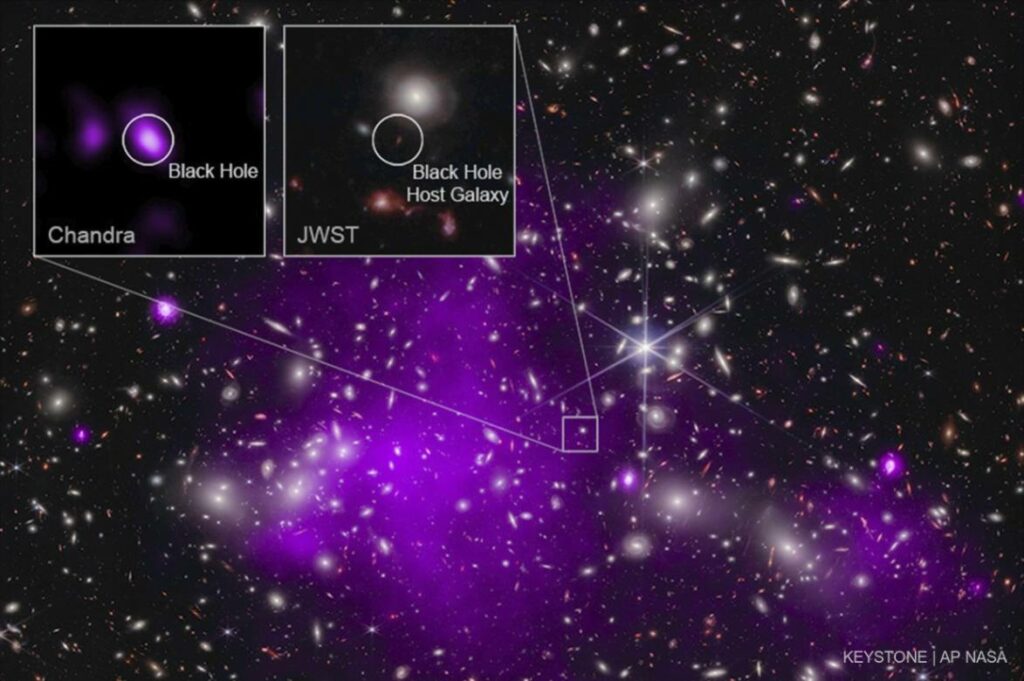Thu, Jan 18th 2024
James Webb Space Telescope Sheds New Light on Ancient Black Hole and Cosmic Dawn

The James Webb Space Telescope has discovered the oldest known black hole to date. According to a new study in the journal “Nature”, astronomers explain that this discovery was made so soon after the Big Bang that it could lead to new theories on the formation of black holes.
According to the study, the black hole devoured its host galaxy GN-z11 430 million years after the birth of the universe – at a time known as the cosmic dawn. This makes it 200 million years older than all other massive black holes discovered to date.
The question of how it could grow so quickly within such a short time after the Big Bang 13.8 billion years ago will provide new information “for the next generation of theoretical models” on the formation of black holes, said Jan Scholtz.
Normally, black holes in galaxies take hundreds of millions – if not billions – of years to form. Stephane Charlot, now suspects that black holes may have formed in a different way in the early days of the universe than later.
For example, they could have been formed by the explosion of particularly massive stars that only existed in the early universe. Alternatively, they could have been formed by the “direct collapse of a dense gas cloud without going through the star formation phase,” he added. After that, the hole could have engulfed the abundant gas around it, causing it to grow rapidly.
Scholtz emphasized that everything that is known so far about the black hole of the GN-z11 galaxy “does not rule out any of these scenarios”. The scientist hopes that the Webb telescope and other telescopes, such as the European Space Agency’s Euclid telescope, will discover even more black holes from the early days of the universe.
The James Webb telescope, which was also built with the participation of researchers from Switzerland, was launched into space in December 2021 after decades of preparations. It is now more than one and a half million kilometers away from Earth.
It explores the early days of the cosmos, just a few hundred million years after the Big Bang around 13.8 billion years ago. Astronomers hope to draw conclusions about the formation of the first stars and galaxies.
©Keystone/SDA
